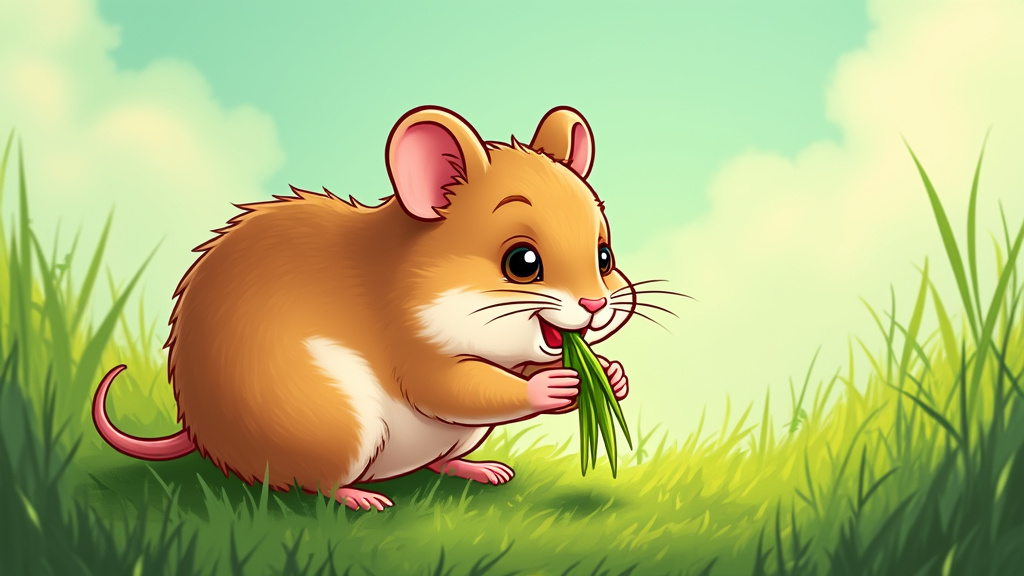Can hamsters eat grass? It’s a question many hamster owners ask when considering adding variety to their pet’s diet. While hamsters can nibble on grass, there are safety precautions and nutritional considerations to keep in mind. This blog will explore the safety, nutritional value, and recommendations for feeding grass to hamsters, helping you make informed decisions about your furry friend’s diet.
Can Hamsters Eat Grass?
The short answer is yes, hamsters can eat grass. However, it’s important to understand that while grass is not harmful in small quantities, it does not offer much in terms of nutrition. In the wild, hamsters tend to forage for a variety of foods, and grass isn’t a significant part of their natural diet. So while it’s safe, it’s not necessary. Let’s dive into more detail about the safety and benefits of feeding grass to your hamster.
Safety of Grass for Hamsters
Clean Grass
When feeding your hamster grass, it’s crucial to ensure that the grass is free of pesticides, fertilizers, and other harmful chemicals. Always use grass from a trusted, untreated source—this could be grass grown indoors, or specifically purchased nibble grass designed for pets. Clean, pesticide-free grass is key to ensuring your hamster’s safety.
Avoid Contaminated Grass
Never feed your hamster grass that may have been exposed to chemicals, pollution, or animal waste. Grass from public parks, roadsides, or gardens treated with fertilizers or pesticides can pose serious health risks to your hamster. To avoid contamination, it’s best to either grow your own untreated grass or buy pet-safe options.
Nutritional Value of Grass
Limited Nutritional Benefits
While hamsters can eat grass, it doesn’t offer much nutritional value for them. Hamsters are not well-equipped to extract nutrients from grass in the same way that herbivores like rabbits can. This means that feeding your hamster grass regularly won’t contribute significantly to their overall nutritional intake.
Dietary Role
Instead of grass, your hamster will benefit much more from a balanced diet that includes a variety of seeds, nuts, fruits, vegetables, and proteins like mealworms or other insects. Fresh vegetables and fruits are far better for their digestion and overall health. Grass should remain a small, occasional treat rather than a core part of their diet.
Recommendations for Feeding Grass
Moderation
Grass should only be given as an occasional treat. Since it lacks substantial nutritional benefits, it shouldn’t make up a significant part of your hamster’s diet. Offering small amounts of clean, untreated grass once in a while can be an enjoyable experience for your hamster, but relying on it regularly may lead to an unbalanced diet. Keep it as a rare addition rather than a dietary staple.
Observation
Whenever you introduce something new to your hamster’s diet, including grass, it’s crucial to closely monitor their behavior and health. After feeding grass for the first time, keep an eye out for any signs of digestive upset, such as diarrhea or discomfort. If you notice any adverse reactions, discontinue feeding grass immediately and consult a vet if necessary. Every hamster is different, and while most can handle small amounts of grass, it’s always better to be cautious.
Conclusion
To wrap it up, yes, hamsters can eat grass, but it comes with important precautions. Clean, untreated grass is safe in small quantities, but it should only be offered occasionally due to its limited nutritional value. A balanced diet of seeds, nuts, fruits, vegetables, and proteins will always be more beneficial for your hamster’s overall health. By prioritizing a variety of nutrient-rich foods, you’ll help ensure that your hamster stays healthy and active while still enjoying the occasional nibble of grass as a treat.

